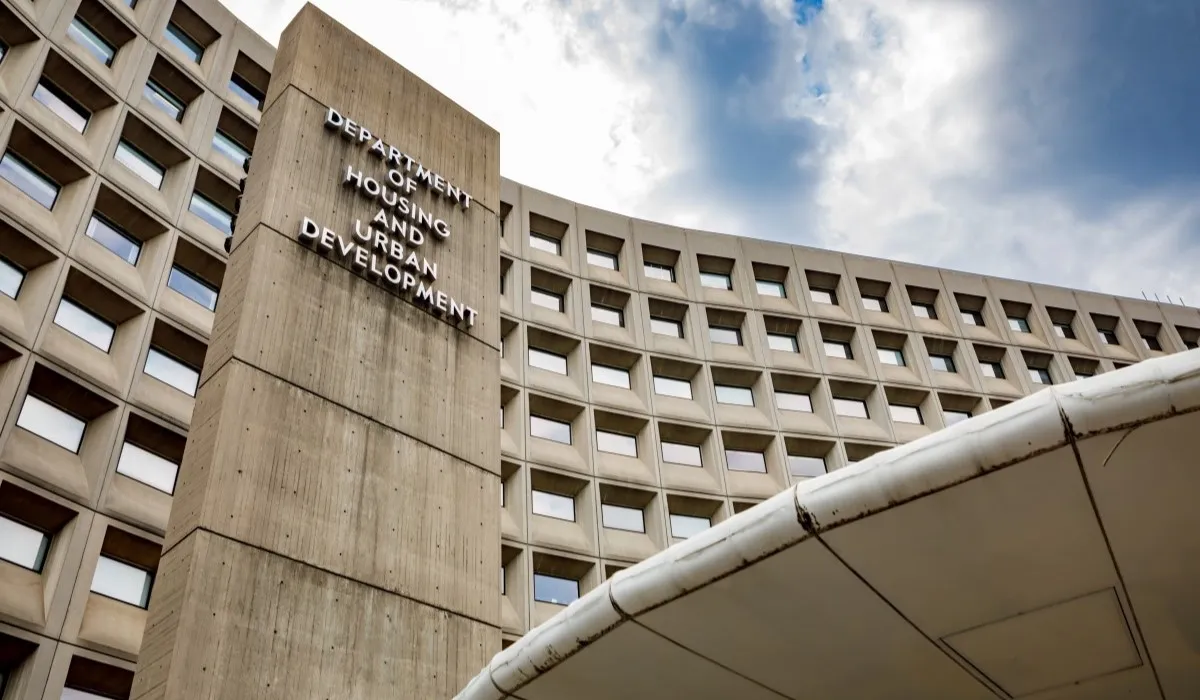Is it cheaper to build a house or buy one? Deciding between these two options is a major choice for any future homeowner. While buying offers convenience and a quicker timeline, building provides the opportunity for customization and the latest features. From the charming brownstones of Boston to the vibrant, art-filled lofts of Chicago, and the modern, beachy apartments of Miami, each home reflects personal priorities, budget, and lifestyle. Whether you prefer the ease of a move-in-ready home or the idea of designing a space from scratch, understanding the costs and benefits of both options will guide you toward the best decision.
Purchasing an existing home often proves more cost-effective than constructing a new one, though total expenses vary based on factors like home size, materials, market conditions, and location. As of December 2024, the median sales price for single-family homes in the U.S. reached $390,000. In contrast, building a home in 2025 is estimated to cost between $138,937 and $531,294, excluding land costs, which can add an additional $3,000 to $150,000 depending on the property’s location and size. When deciding if it is cheaper to build a house or buy one, it’s essential to consider the advantages and disadvantages of each option and understand the associated costs to make an informed decision.

The cost of building a house vs buying: Which is cheaper?
When weighing the costs of building versus buying a home, it’s important to consider the factors that influence pricing. Constructing a home gives you full control over aspects like materials, design, and size, allowing for customization. But if you’re wondering, “Is it cheaper to build a house?” it depends. Purchasing an existing home means your expenses are shaped by factors such as market conditions, demand, and the property’s current condition.
The cost to build a house
Constructing a home involves various expenses that can fluctuate based on location, materials, and market dynamics. Here’s a breakdown of the primary cost components:
- Land acquisition: The price of land varies widely depending on factors like location, size, and local market conditions. On average, an acre of land in the United States costs approximately $16,000, but this can range from under $1,000 in some areas to over $100,000 in others.
- Construction materials: The choice and quality of materials significantly influence the overall cost. As of 2025, the average expense for building materials is about $150 per square foot, though this can vary based on regional pricing and material selection.
- Site preparation: Preparing the land for construction—including clearing, grading, excavation, and utility hookups—typically costs around $33,000, with a range between $15,000 and $70,000, depending on site-specific factors.
- Design and architectural services: Engaging an architect for a custom home design can cost between $2,195 and $11,647 on average, with fees varying based on the architect’s experience and the complexity of the project.
- Labor costs: Labor expenses fluctuate based on location and project complexity, especially for specialized tasks like plumbing and electrical work. Generally, labor accounts for 30% to 50% of the total construction budget.
- Permits and fees: Securing necessary building permits and adhering to local regulations typically adds between $457 and $2,859 to the project’s cost.
- Fixtures and finishes: The selection of interior elements such as flooring, cabinetry, countertops, and appliances affects the final price. Standard appliances average around $10,875, while high-end or smart appliances can exceed $24,400.
- Landscaping: Designing and implementing outdoor spaces adds to the overall expense, with new landscaping projects averaging about $3,507.
- Market conditions: Fluctuations in the construction industry — due to material costs, labor availability, supply chain issues, and economic factors — can impact building expenses. For instance, tariffs on imported goods have recently increased material costs, potentially adding $17,000 to $22,000 to the price of a new home.
- Unexpected expenses: Unforeseen challenges, such as discovering hidden underground utilities, can lead to additional costs. Allocating a contingency budget helps mitigate the impact of these surprises.
- Financing and closing costs: If you’re financing the land purchase or construction, anticipate paying 2% to 5% of the loan amount in closing costs.
Considering these factors, the estimated cost to build a house in 2025 ranges from $110,000 to $650,000, excluding land expenses. Larger homes or those with high-end finishes will naturally incur higher costs. Financing options are available but typically involve additional fees.
It’s essential to conduct thorough research and consult with professionals to obtain accurate estimates tailored to your specific project and location.

The cost to buy a house
Purchasing a home involves several key expenses beyond the property’s listed price. Here’s an overview of the primary costs to consider:
- Purchase price: The market value of a home varies based on factors like location, size, condition, and local real estate trends. As of the end of 2024, the median home sales price in the U.S. is $419,200.
- Closing costs: These encompass expenses such as appraisal fees, title insurance, loan origination fees, and other administrative charges, typically amounting to 2% to 5% of the home’s purchase price. For a median-priced home, this translates to approximately $8,384 to $20,960.
- Home inspection: Conducting a thorough inspection is essential to identify potential issues with the property. The cost for a standard home inspection ranges from $250 to $700, depending on location and the home’s size.
- Immediate repairs or renovations: Older homes or those requiring updates may necessitate additional investments post-purchase. Renovation costs can vary widely, with minor updates averaging around $19,514 and major overhauls reaching up to $87,474. Specific repairs, such as roof replacements, can cost approximately $2,500, while foundational repairs might be around $1,000 per structural beam.
- Location: Geographical location significantly influences home values and associated property taxes. For instance, the average home value in California is $799,000, whereas in North Carolina, it’s $327,215.
- Market demand: In areas with high demand and limited housing inventory, property prices tend to be elevated due to increased competition among buyers.
- Interest rates: Mortgage interest rates, influenced by factors such as credit score, debt-to-income ratio, income, and down payment size, play a crucial role in the overall cost of purchasing a home. As of late 2024, mortgage rates are projected to average 6.4% through 2025.
Considering these factors, the total cost of buying a home can range significantly. For a median-priced home, initial expenses — including the purchase price, closing costs, and inspection — could total between $427,834 and $440,860. Additional costs for repairs, renovations, and varying interest rates will further influence the overall expenditure.
It’s essential to conduct thorough research and consult with real estate professionals to obtain accurate estimates tailored to your specific circumstances and location.

Is it cheaper to build a house? Experts weigh in.
“When deciding whether to buy or build, your budget should be the driving force behind your decision. Building a home gives you control over customization, but costs can quickly spiral due to fluctuations in material prices. On the other hand, buying an existing home offers more price stability and a faster move-in timeline. Whichever path you take, avoid debt traps by ensuring your mortgage (or total build cost) stays within 25% of your take-home pay and that you’re financially prepared for the long-term commitment.” Mark Kelly, Certified Financial Planner Professional, University Financial Strategies
“Building a home allows you more customization options, but it comes with significant cost and longer timelines. Constriction can take anywhere from 6 to 12 months (up to 18 months in some cases). If you’re looking for a more affordable option and a quicker timeline, buying an existing home would be the better choice as it typically takes 3-5 weeks. Consider your budget, timeline, and financial situation before making a decision between the two.” Justin Turner, General Contractor/Home Builder
“From a financial perspective, building vs buying an existing home can be advantageous due to risk reduction. When you build, you start fresh with a new roof, mechanicals, and appliances that all should carry warranties that will reduce any unexpected expenses after moving into your home. On the flip side, building a new home doesn’t come without its challenges as well. On the flip side, just because a home is new, doesn’t mean it is built well. These homes can come with their issues as well which can surprise homeowners when they have to pay to fix something they didn’t expect. I always recommend that clients keep more in emergency savings than they think they need due to these factors.” Ian J. Wild, CFP, Founder, Financial Planner, All-Pro Advisors
“Buying a new home allows you to personalize design elements to your taste, with the added benefit of minimal maintenance concerns.” Ryan Bock, Certified Residential Appraiser, Bock Appraisal Services

“Choosing between buying and building a home comes down to financial readiness, timeline, and long-term goals. While building allows for customization, it often comes with unexpected costs, delays, and higher upfront expenses. Buying a move-in-ready home can provide cost predictability and immediate equity-building — especially with alternatives like lease-to-own programs that offer a lower down payment and financial flexibility. If you’re looking for a financially savvy way to own a home while building wealth from day one, explore Burson Home Advisors for innovative homeownership solutions.” – Tamera Nielsen, Co-Owner of Burson Home Advisors
“Building your own home offers the advantage of complete customization, allowing you to design a space that perfectly suits your needs and preferences. While the initial costs and timeline may be longer, this can be mitigated by using the Design-Build approach to help streamline time and give you clarity on costs. Additionally, building your own home will give you greater control over quality and materials, which can lead to fewer repairs down the road. Lastly, building offers potential long-term value, as you can invest in energy-efficient features and modern designs that align with your lifestyle. Overall, it’s a great option if you want a personalized home that truly reflects your vision.” Drew Helm, Haven Design Build
“Whether buying or building is the better option depends on priorities like budget, timeline, and long-term goals. Buying an existing home offers a quicker, more predictable process with fewer surprises—plus, upgrades like landscaping and patios may already be in place. On the other hand, building allows full customization but often comes with hidden costs, longer timelines, and the need for vision. While new construction may cost more upfront, it can provide modern warranties, energy efficiency, and long-term value. For those prioritizing lifestyle fit and personalization, building can be worth the investment.” Rachel Mann, Marking Coordinator, Triangle Appraisal Group
“If you’re looking for a move-in-ready home without the wait, an existing home may be the right choice. It’s ideal for buyers who are open to renovations or minor updates to secure a better deal, prefer an established neighborhood with mature landscaping and community amenities, or have a strict budget and want to avoid unexpected upgrade costs.
On the other hand, new construction offers modern layouts, energy-efficient appliances, and brand-new features. If customization is a priority, you’ll appreciate the ability to select finishes and floor plans. While new homes require a longer wait, they come with lower maintenance costs and fewer immediate repairs, making them a great option for buyers looking for convenience and long-term savings.” Christopher Shaw, Christopher Shaw Real Estate Services
Should you buy or build a house?
According to Brian Mitchell, CEO of Axios Custom Homes, “No matter whether you decide to buy or build a home, there are creative solutions that can make the decision easier. For example, you could purchase an existing home and add an extension or make renovations to achieve the customization you desire. Alternatively, if building a new home feels like the right path, you could design a smaller home that can be easily expanded in the future as you’re ready to invest more. With these flexible options in mind, you can address some of the major factors involved in the decision-making process.”
Your budget, timeline, location preferences, future housing plans, design desires, and the current market all influence whether building or buying a home is the better option for you. Take time to carefully consider the advantages and disadvantages of each to find the right choice. If you plan on financing your home, use Redfin’s mortgage calculator to get a better idea of your monthly payments and how much you can afford. This will help you make a more informed decision based on your financial situation.
Bring the holidays home with Redfin Redesign
Claim your home to create your ideal holiday space with garlands, lights, and festive touches, or use Redesign on any Redfin listing!
If you are represented by an agent, this is not a solicitation of your business. This article is for informational purposes only, and is not a substitute for professional advice from a medical provider, licensed attorney, financial advisor, or tax professional. Consumers should independently verify any agency or service mentioned will meet their needs. Learn more about our Editorial Guidelines here.

Find the right loan for the home you love
Find the right loan for the home you love
Popular homes for sale
Start your home search on Redfin
.png)
 German (DE)
German (DE)  English (US)
English (US)  Spanish (ES)
Spanish (ES)  French (FR)
French (FR)  Hindi (IN)
Hindi (IN)  Italian (IT)
Italian (IT)  Russian (RU)
Russian (RU)  3 hours ago
1
3 hours ago
1











Comments